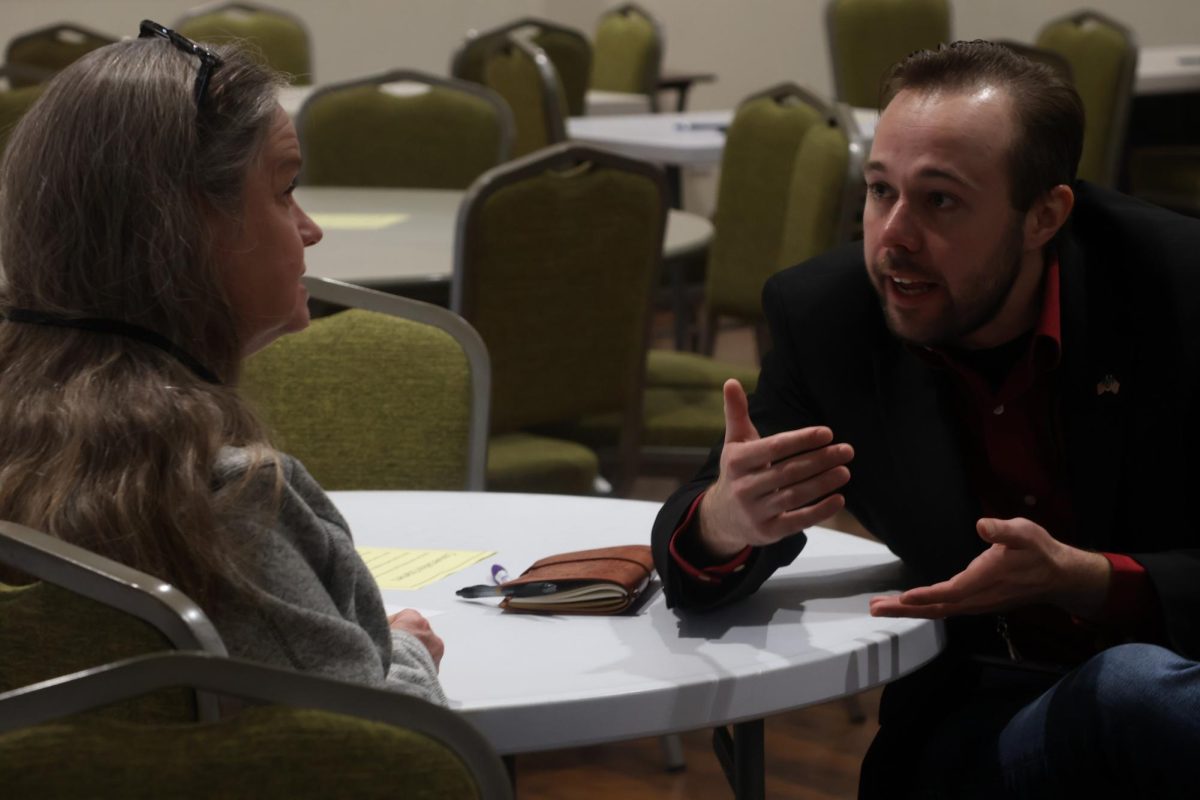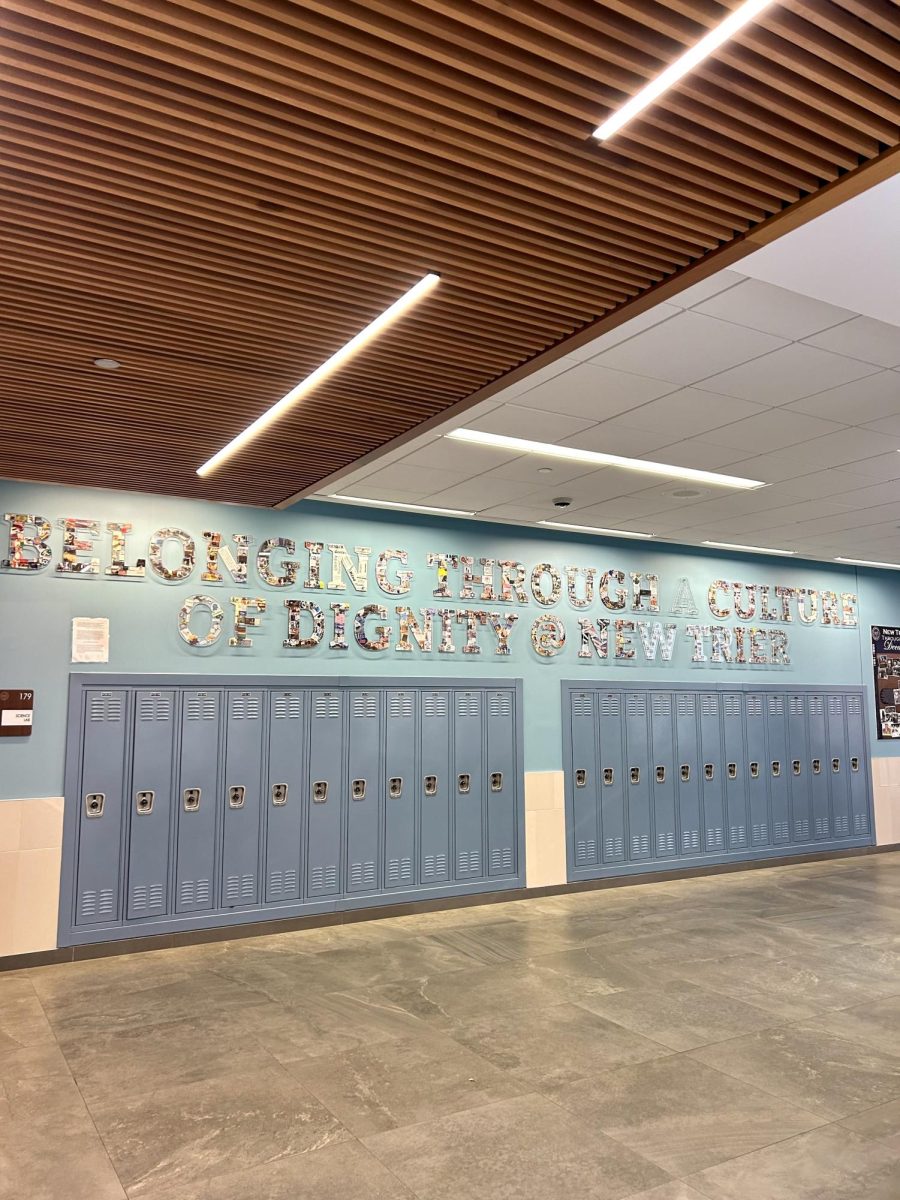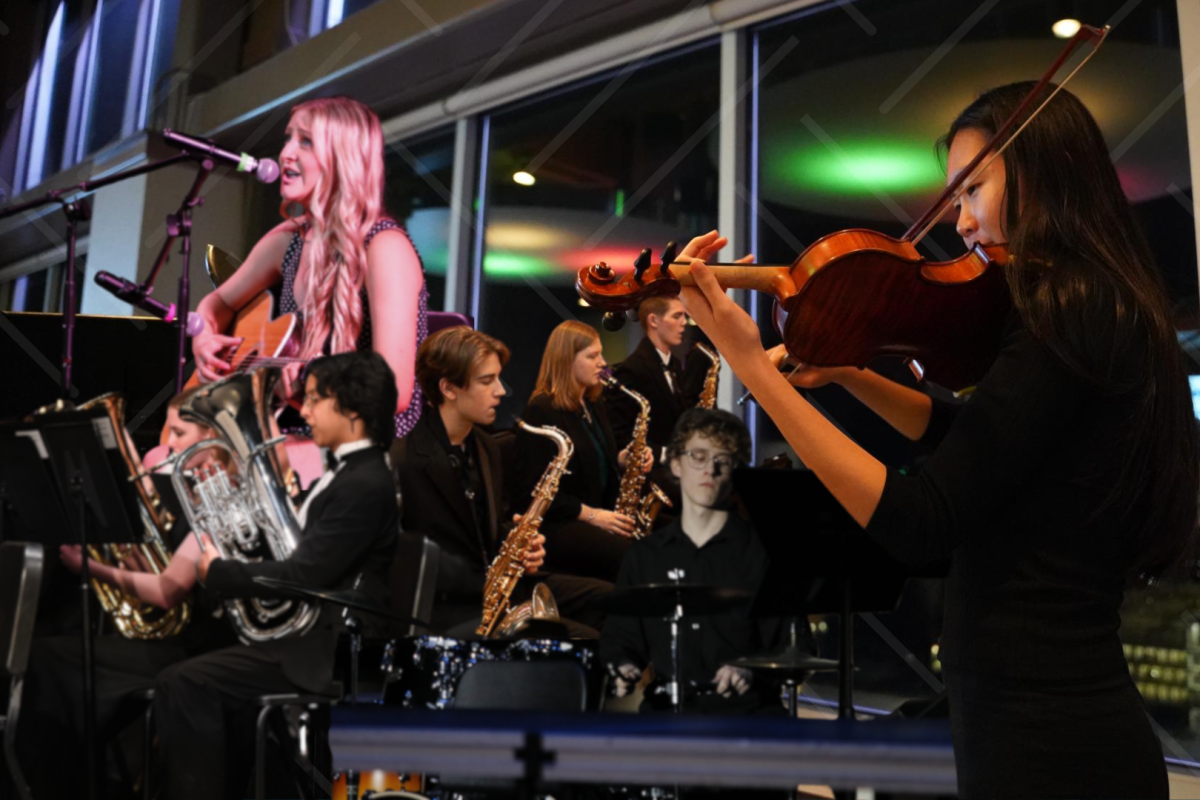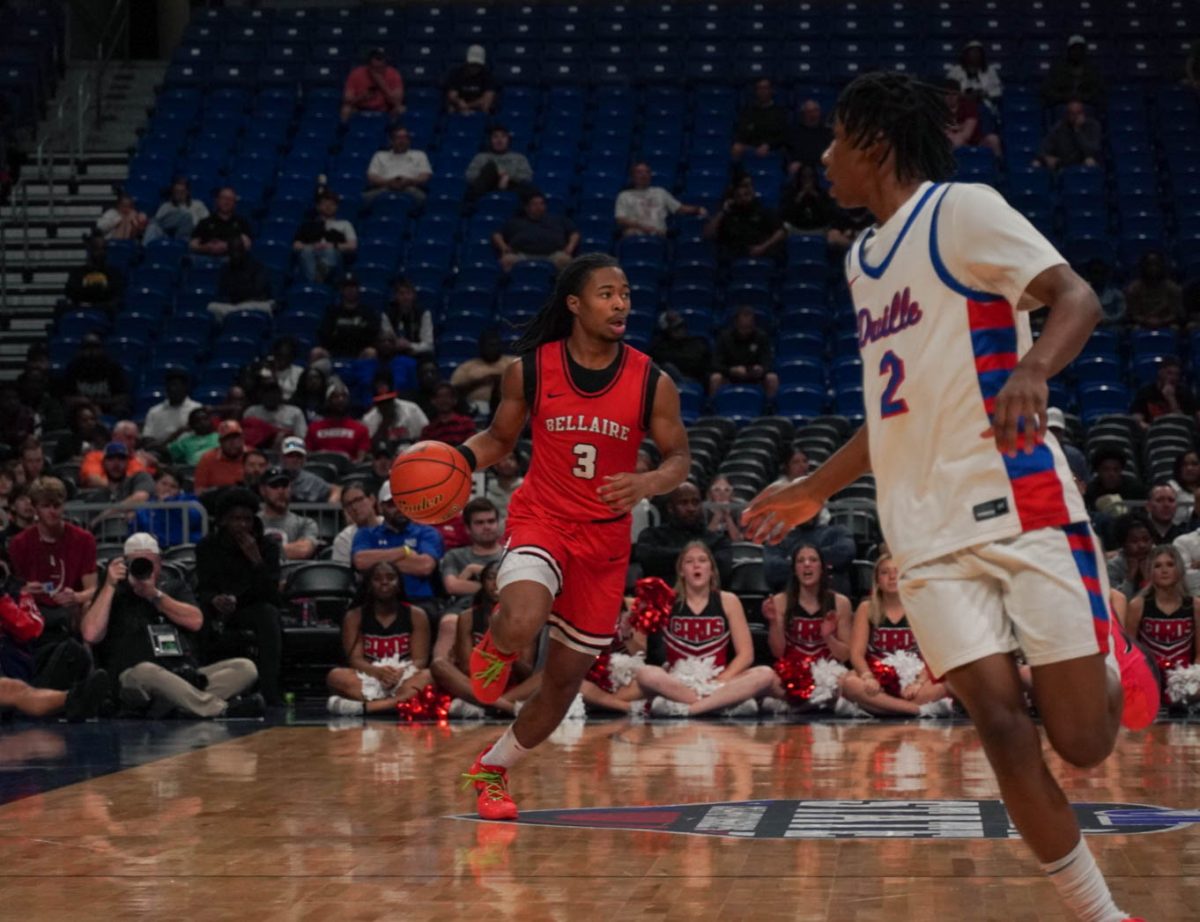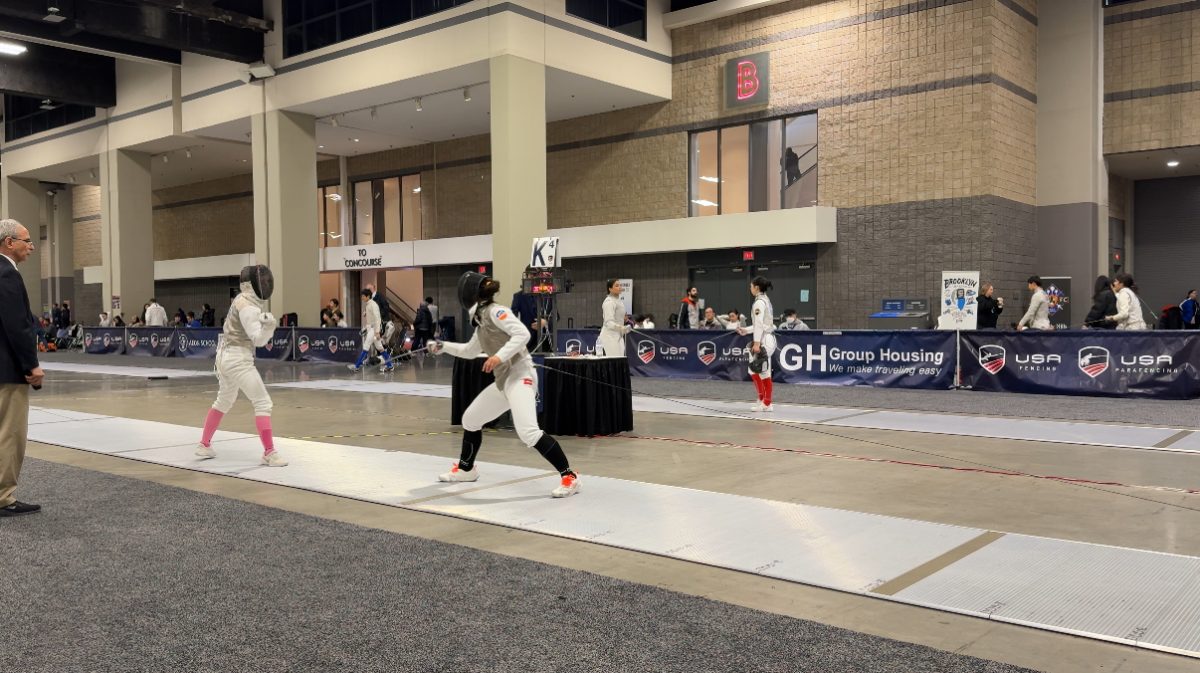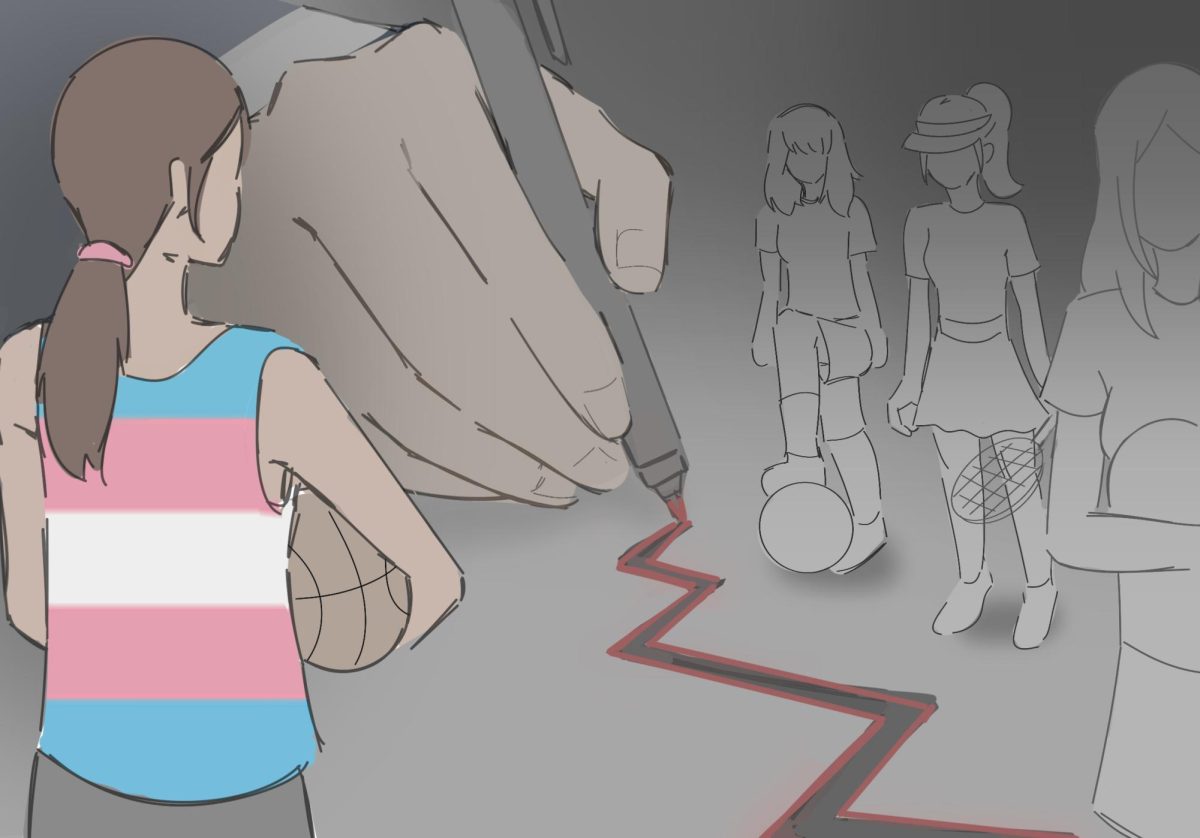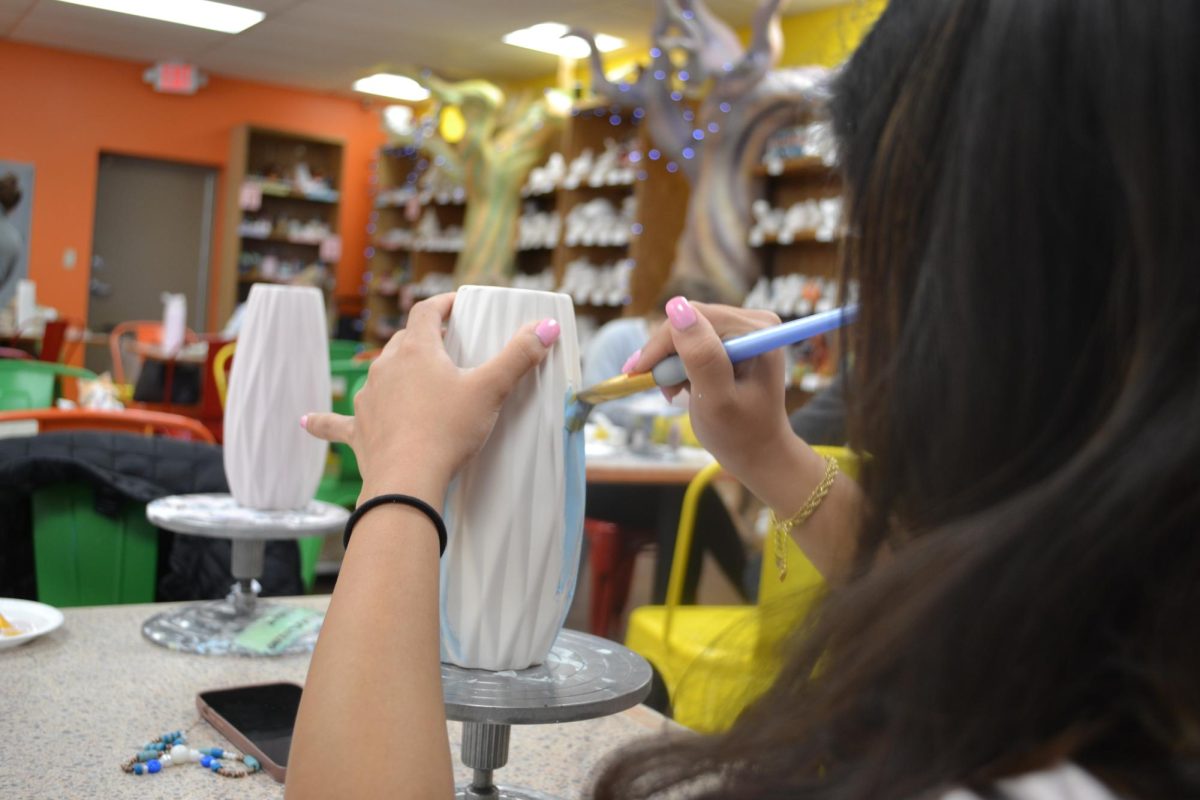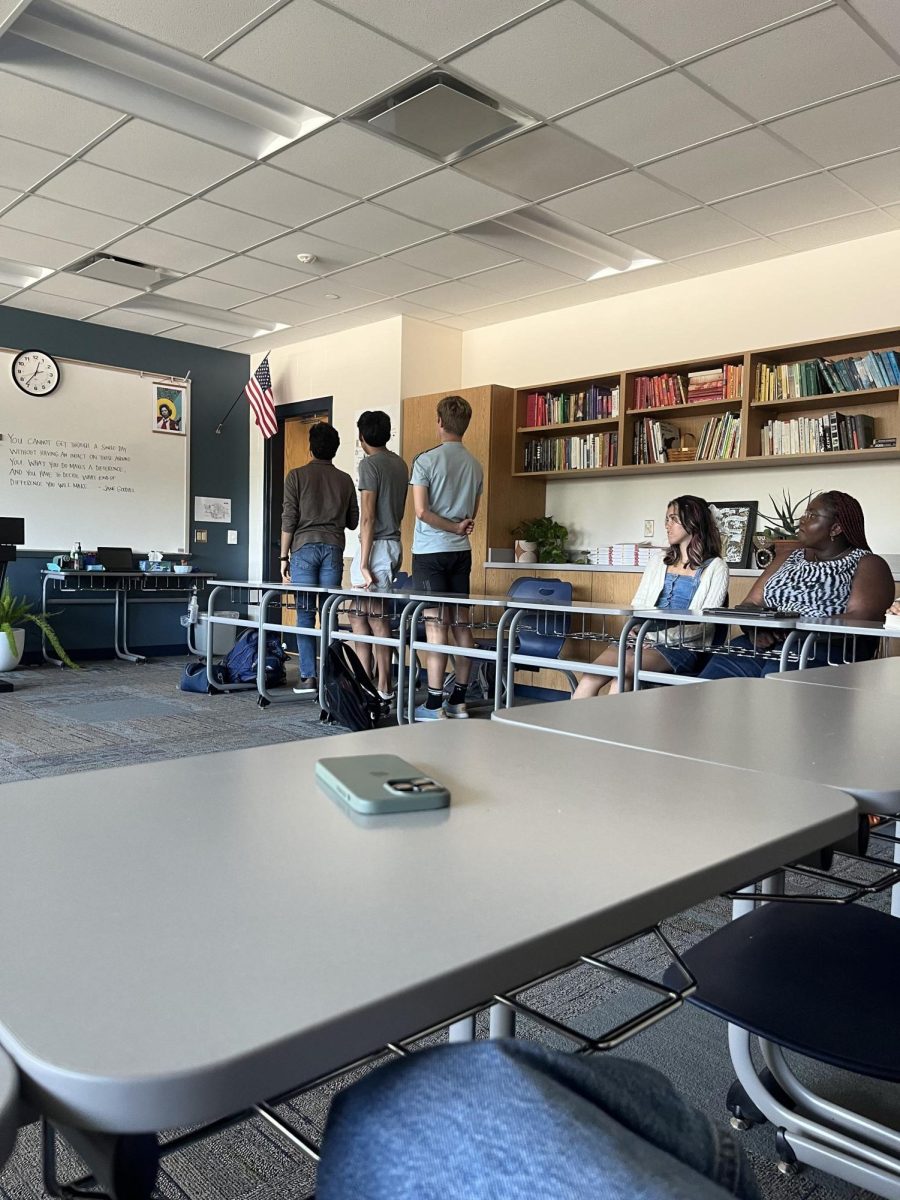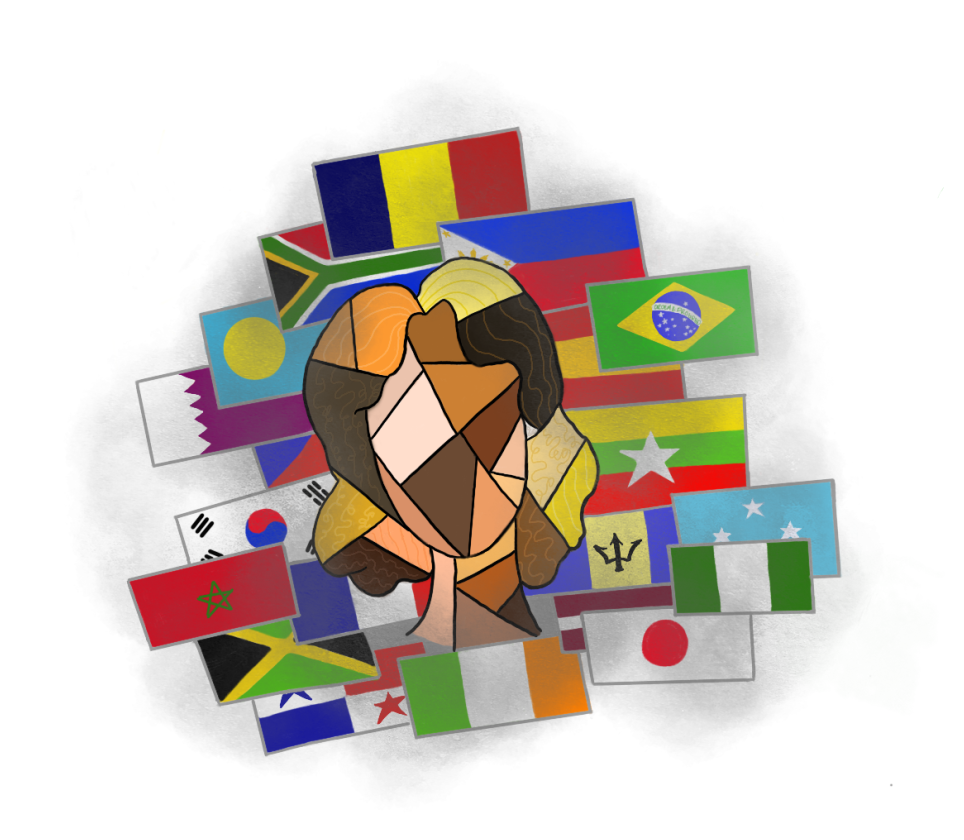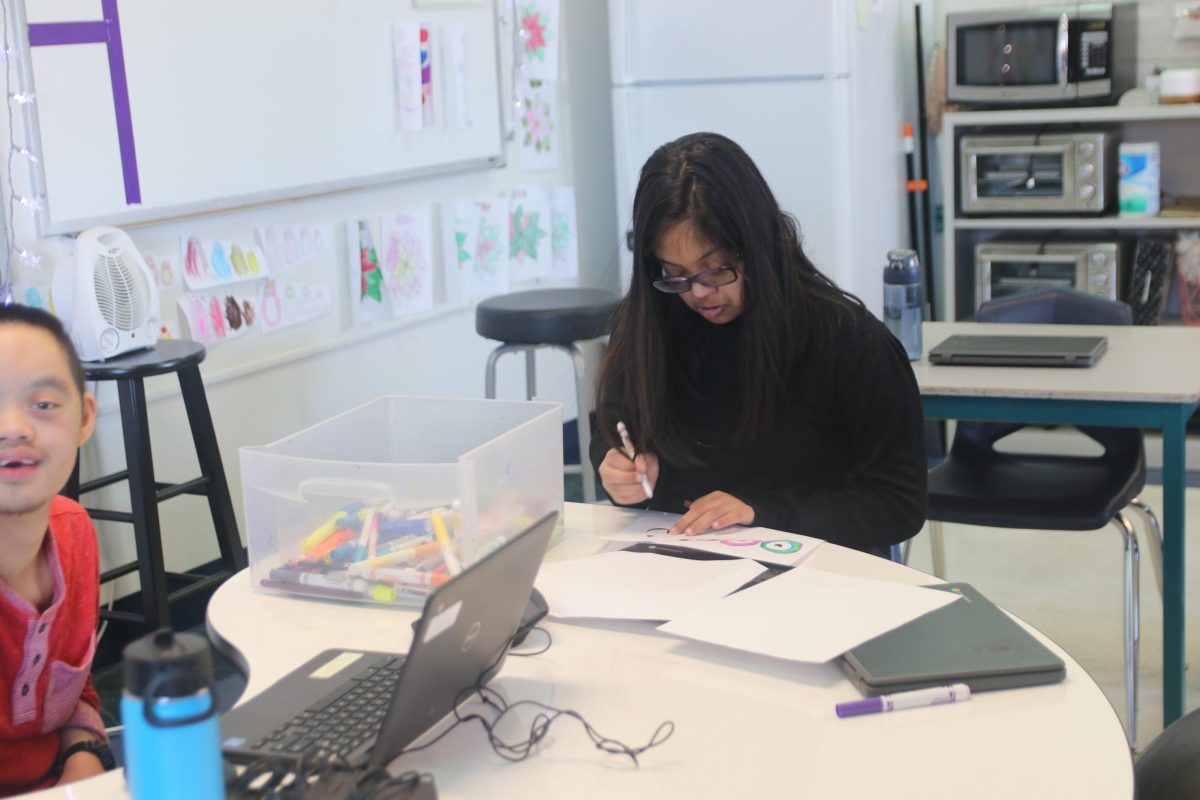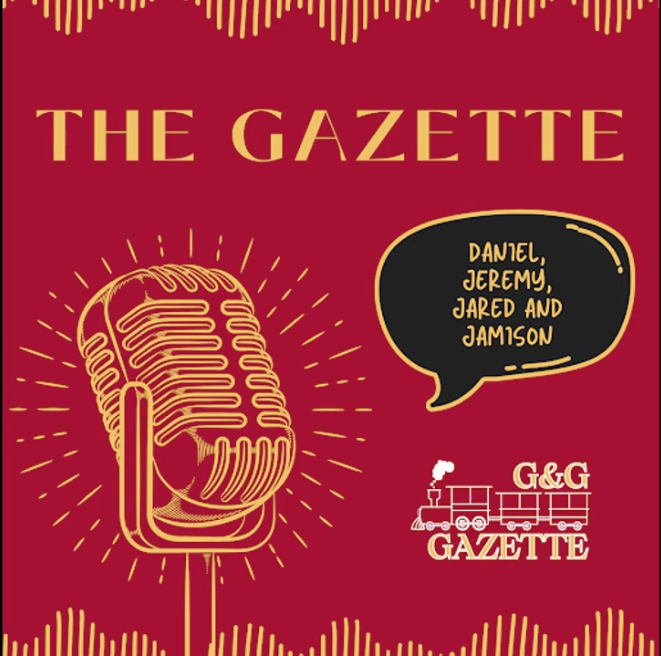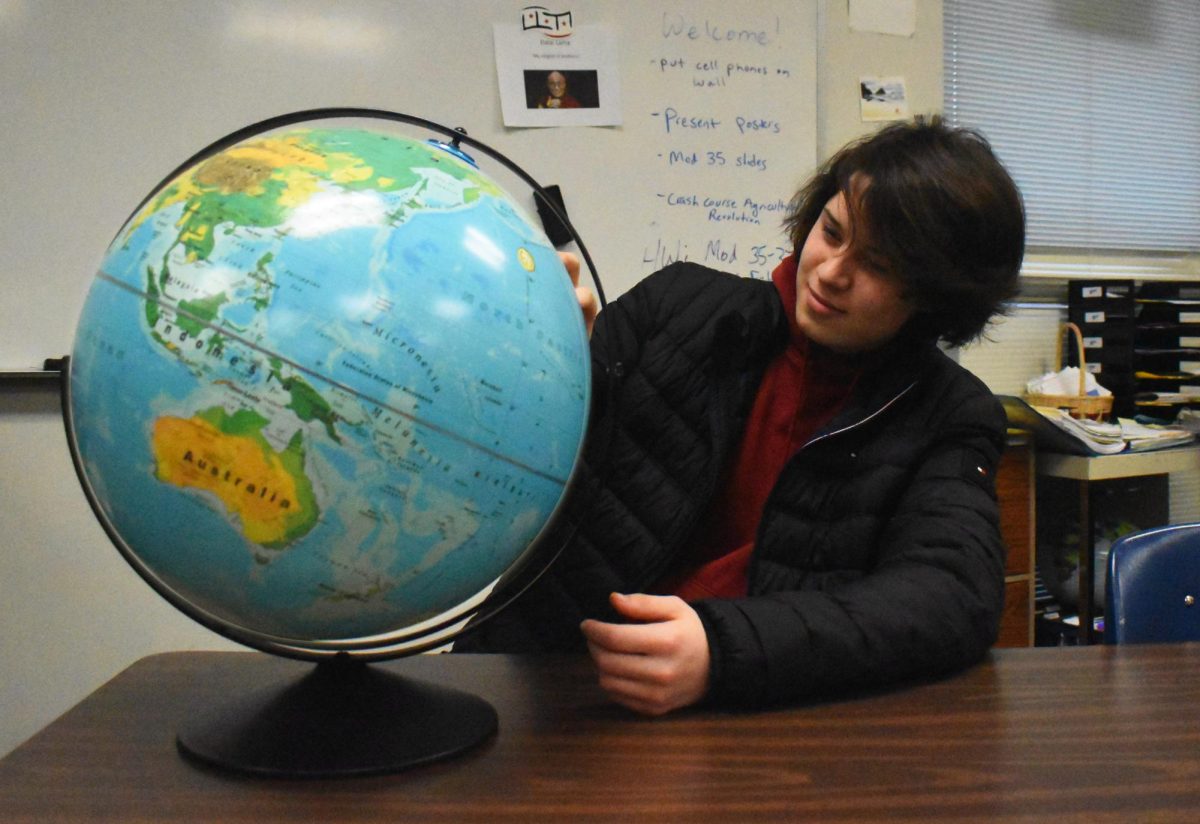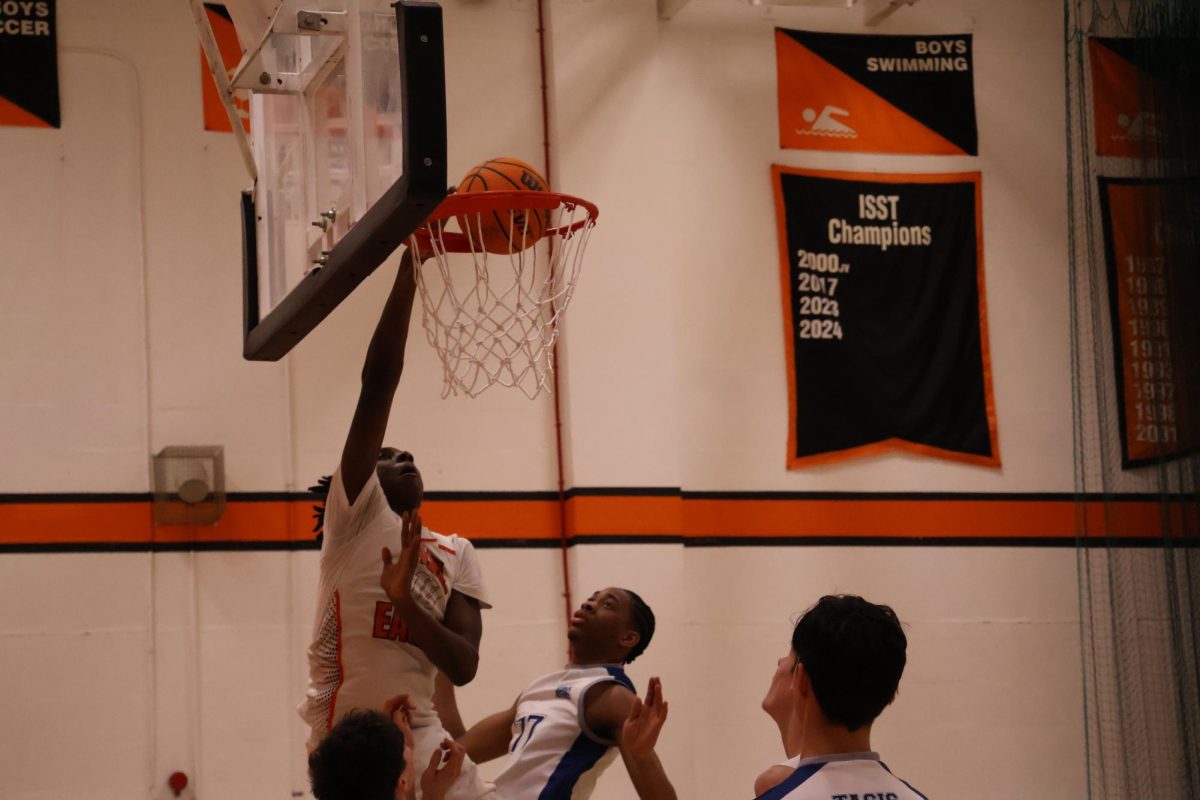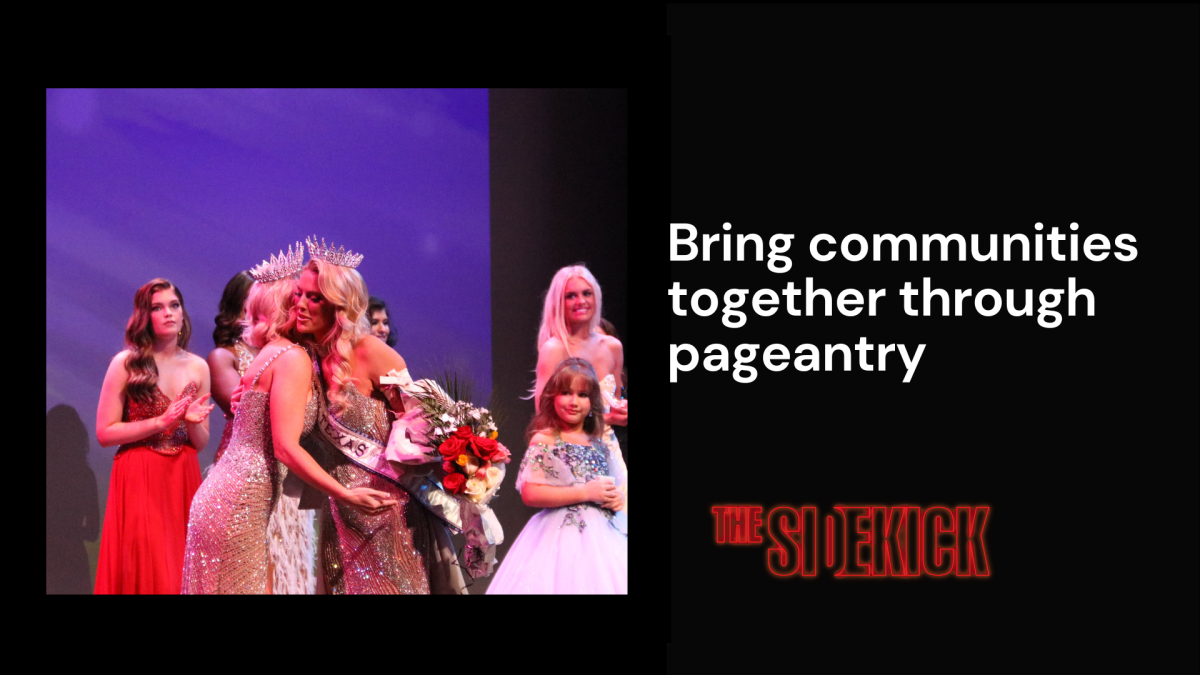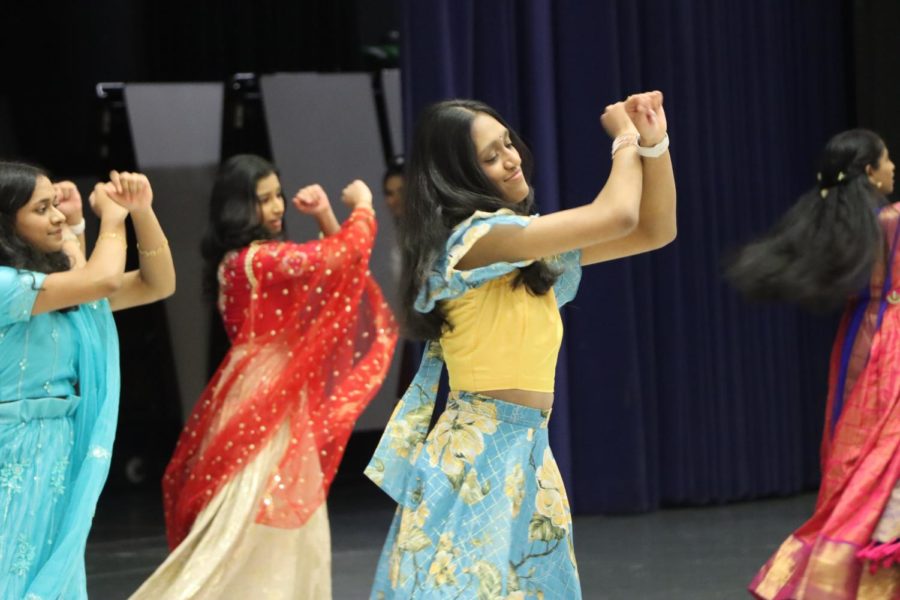Along with the Class of 2023, Storm Van Oosen will be graduating this year. But, unlike the rest of his class, he will be completing his sixth year of high school.
Van Oosen grew up in the Netherlands for 14 and a half years, moving to the U.S. for his freshman year of high school. In the Netherlands, middle school is not offered, so high school starts in the seventh grade.
“When I moved here, I loved it,” Van Oosen said. “It felt comfortable for me pretty quickly.”
But other than free refills at restaurants and driving with a permit at 15, Van Oosen said adjusting to American culture has had some struggles.
“I missed the people more than the country itself,” Van Oosen said.
Van Oosen said his move was also difficult at first because he didn’t speak a lot of English, though English was taught in the Netherlands curriculum.
“I only learned through movies and video games, so that was very hard,” Van Oosen said.
For Van Oosen, his transition to the U.S. became routine after his freshman year.
Van Oosen experienced cultural assimilation, or the process in which minority cultures or groups come to resemble the society’s majority group. Adjusting to American life is a reality for immigrants and can change the manner or logistics of how their cultural and religious practices are observed.
Cultural Experiences at MHS
Musa Mirza, senior, considers himself a culturally appreciative person. After all, he attended an international school and lived in Saudi Arabia for seven years, exposing himself to people from many different cultures.
“Filipinos, Palestinians, Chinese, Japanese, Tunisians—honestly, it’s interesting, people from different cultures who like other cultures,” Mirza said.
Mirza also has a rich cultural background.
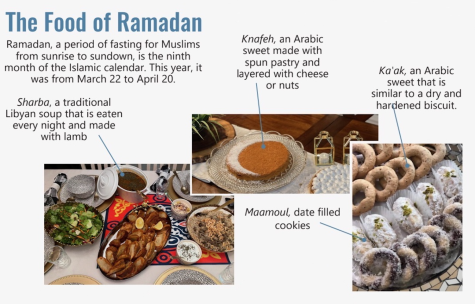
His father was born on a train that was moving from the cities of Lucknow to New Delhi in India. He came to the U.S. when he was 7 years old. His mother, however, was born in the U.S., but her parents were German and Italian.
The variety in Mirza’s cultural background with Indian and European parents makes balancing both sides equally challenging.
“It’s kind of hard because having different backgrounds you can’t really just stick to one,” Mirza said. “But, it’s still so enjoyable.”
Additionally, living in America also exacerbates the challenge for him.
“It is kind of hard to practice culture because when you have a certain culture and when you’re experiencing other cultures, you kind of lose part of it,” Mirza said.
Mirza said he doesn’t connect much with his Italian or German side as he hasn’t picked up the language as much as he has with Arabic or Urdu.
For Zubia Rajput, junior, observing Ramadan, the holy month of fasting in Islam, is about community. But fasting during Ramadan in America versus in Pakistan, Rajput’s nation of origin, has its differences.
“It’s definitely harder because when you live in Pakistan, everyone’s just fasting, so it’s not like you’re the only one,” Rajput said.
During Ramadan, Muslims abstain from food and water from sunrise to sundown to introspect and deepen their relationship with God. The fast is broken at iftar, or after sunset, with three dates.
In America, Rajput said Muslim students also have to make time to pray during the school day. For example, Muslim students pray in the physics room between fourth and fifth hours.
As a first-generation immigrant, Rajput said she can see herself becoming more Americanized than her relatives living in Pakistan.
“Assimilation is certainly sad because you don’t want to forget your culture, but it’s also kind of inevitable,” Rajput said.
Education and Culture
Scott Szevery, history teacher, has gained a thorough knowledge on assimilation within the U.S. after teaching about the topic for years.
“I think the push towards assimilation is a pretty natural tendency,” Szevery said. “Humans desire belonging, and we also tend to feel threatened by differences.”
Due to those large waves of immigration in the late 1800’s, a federal policy was instated that forced immigrants to assimilate into American society.
“There was a sense of superiority associated with it, that America was better than the place wherever you came from and therefore you need to adapt to our ways,” Szevery said.
The second stage of assimilation, Szevery said, occurred during the 1920s, when Americans became overwhelmed by the number of new immigrants, causing the government to set up a quota system for certain countries. After 40 years, these quotas were changed, as cultural diversity and differences began to be celebrated instead of discouraged.
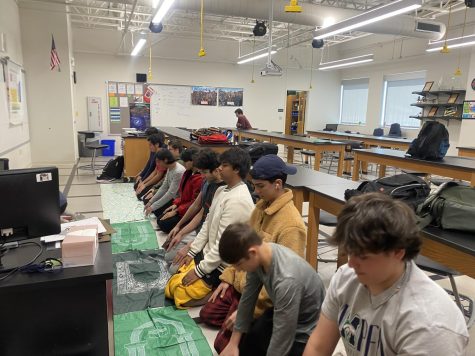
During that time, the “salad bowl” analogy came about. Instead of a melting pot that blends cultures into one, a salad bowl allows for a separation and appreciation for individual cultures.
Dr. Cassandra Suggs, the new director of educational equity and access beginning July 1, said culture by its very nature is a part of education in Rockwood and everywhere.
“I believe that Rockwood provides an opportunity for students, staff and parents to interact with one another in a positive manner and that is great for kids to see and be a part of,” Dr. Suggs said.
According to a breakdown of the MHS student population by race and ethnicity, 35.74 percent is a racial minority not of Hispanic origins. More specifically, within the district, 1,755 of the total 6,853 students are either a minority ethnicity (Asian, Black, Hispanic, Native American and Pacific Islander) or multi-racial.
Being native to Panama, Monica Bremer, Spanish teacher, is able to pass Spanish culture onto her students while teaching them the language.
 “I’m not only sharing the language, but I’m also sharing the way the culture thinks,” Bremer said. “The fact that I grew up in that culture is a more direct or immediate experience through me than someone that grew up here.”
“I’m not only sharing the language, but I’m also sharing the way the culture thinks,” Bremer said. “The fact that I grew up in that culture is a more direct or immediate experience through me than someone that grew up here.”
Cultural Appreciation at Marquette
In response to a Social Emotional Learning (SEL) survey indicating students wish to see more diversity, equity and inclusion (DEI), the DEI committee was formed.
The DEI committee encourages new activities and initiatives at MHS to increase students’ sense of belonging, Jordan Shelton, language arts teacher, said.
Shelton is one of the DEI champions and led the Festival of Nations, conducted on Wednesday, March 8. The Festival included numerous student performances of cultures, music, games and even a story corner with cultural books for younger kids.
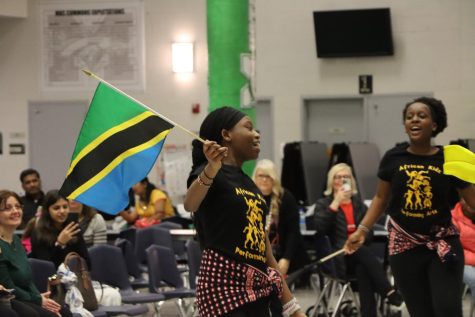
“At the end of the day, what matters to me is that our students feel supported and safe and welcomed here in our schools,” Shelton said.
For future initiatives, Shelton is looking for students’ help in creating a club as part of the DEI committee that is focused on helping immigrant students assimilate into schools and feel like they belong here.
Shelton said culture plays an incredibly important role in education because culture defines how individuals relate to each other and the world around them.
“If we’re talking about it from a career standpoint, I would say that we as teachers have to be aware of students’ cultures and differences in order to be able to meet them where they are and help them internalize new information,” Shelton said.
This story was originally published on Marquette Messenger on May 5, 2023.


